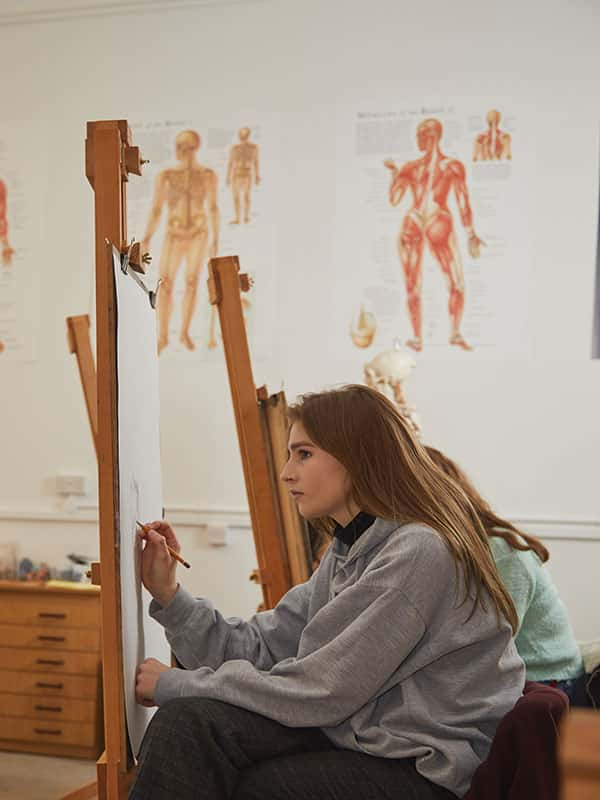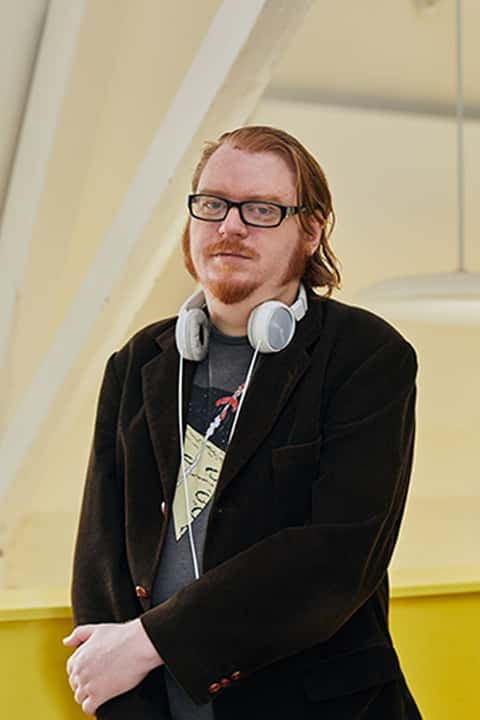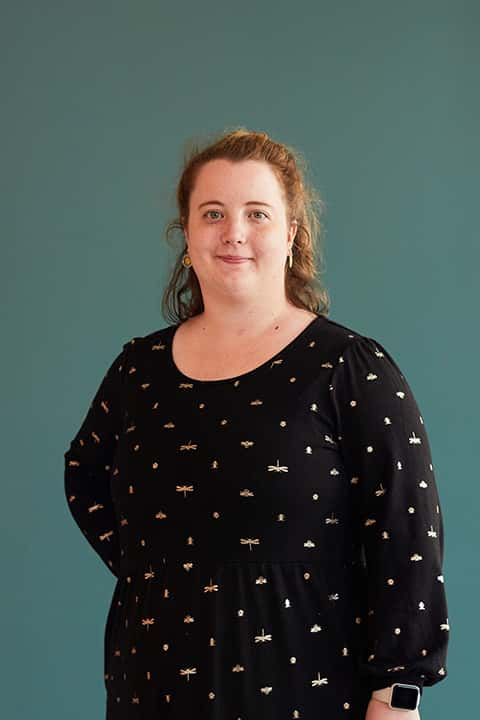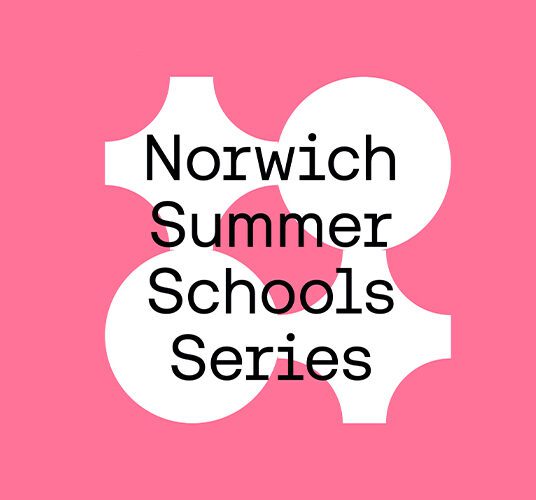


Games Art and Design BA (Hons)
Length:
3 or 4 year options
UCAS Code:
WL21 (3 Year)
W280 (4 Year)
Institution Code:
N39
Sandwich courses:
Creative Professional Development (1 year, Level 5 diploma), or Creative Computing (1 year, Level 5 diploma), available between years 2 & 3
Explore and develop your skills of current game studio pipelines and be part of a collaborative, supportive department.
Our BA (Hons) Games Art and Design has an international reputation for producing graduates who excel creatively and technically. The Rookies ranked Norwich University of the Arts in its global top 30 – and placed us 7th for 3D Animation, 20th for Concept Art and Illustration and 29th for Game Design and Development in their global rankings.
Our award-winning industry-led course follows a T-shaped learning model where you specialise in your chosen field yet crucially gain awareness across art, code and audio disciplines to level up your knowledge and experience as a creative, opening a wealth of graduate employability options.
You will design and create characters, props, environments and vehicles using 2D and 3D content creation software for a range of platforms, including console, web, mobile, computer, augmented and virtual reality. You’ll approach design and content creation with a focus on originality, supported by research into historical, cultural and broader creative influences, helping you become a well-rounded and inventive games designer.
Students and graduates have worked on major ‘AAA’ titles such as Star Wars Jedi: Survivor, Red Dead Redemption 2, Batman: Arkham Asylum and Sea of Thieves, while others have set up their own successful independent studios.
Accredited by:
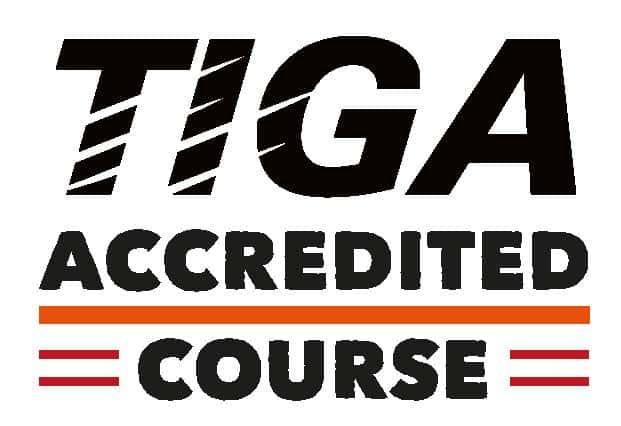
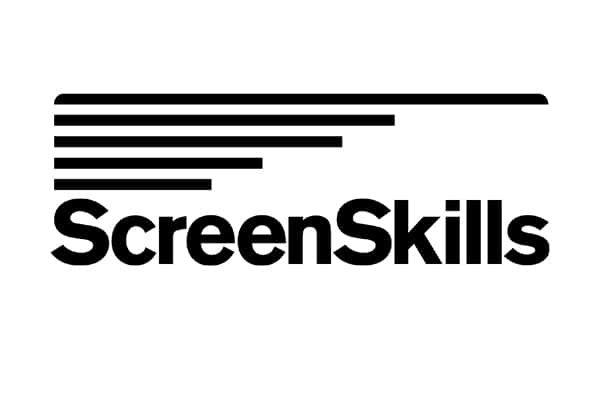
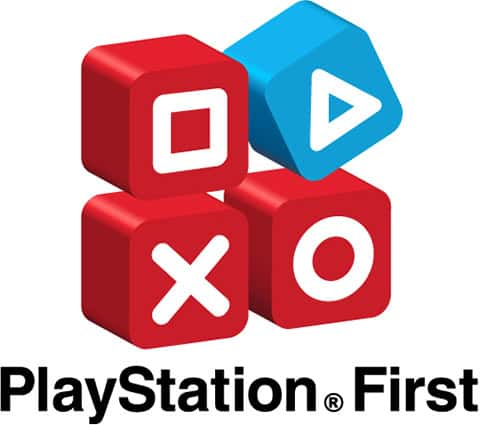
Why study with us
- Study the fundamentals of game design, industry-leading Unreal Engine, and be introduced to formative theoretical concepts from contemporary academics and practitioners.
- Design and create characters, props, environments and vehicles using 2D and 3D content creation software.
- Develop your skills across concept art, asset production, indie development, and game audio, shaping your course journey with specialism support.
- Learn how to use computational logic to generate interactivity in the creation of game prototypes.
- Be involved in live briefs and collaborative projects such as games jams, both within Norwich and internationally where teams work together to build games from scratch under a deadline.
- Work with technical-minded BSc (Hons) Games Development students to inspire and elevate each other’s projects.
- Engage in professional networking through our high-profile visiting speakers, or at major events like Develop: Brighton, Women in Games, Ukie Conference and Norwich Games Festival.
Course Content
Year 1
- Learn industry-standard software to design characters, game assets and game prototypes
- Develop observation and drawing skills though life-drawing, anatomy lectures, and digital painting workshops
- Generate concept art, emphasising an iterative design process, lighting, composition, colour, texture, narrative, mood and intent
- Participate in each of three areas of specialism offered on the course (Concept Art, Asset Production and Indie Development) to identify aspirations and future career goals
- Engage with industry experts and events such as EGX, Develop: Brighton, Norwich Gaming Festival, Brains Eden, and more. Direct your questions and queries direct to guest speakers though a series of visiting lectures
- Build research skills to support idea generation and development; review and understand the wider games industry, incorporate games studies in to studio practice; and structure valid arguments though essays
- Improve your game design by examining interactivity and player engagement through playtesting and prototyping techniques.
Year 2
- Focus on your choice of games art specialism for the rest of the course. Concept Art, Asset Production or Indie Development, you decide!
- Attend lectures and workshops on anatomy to better understand game characters. Grasp the opportunity to create an anatomical figure in wax – one bone at a time
- Experience industry-set ‘Art Tests’ across each of the subject specialisms, as provided by our industry partners and contacts
- Work collaboratively to create game prototypes and present the outcomes to a range of audiences at the Norwich Gaming Festival
- Conduct work-related learning through live briefs, simulated projects and collaborations with external organisations
- Participate in a range of internal and external ‘Game Jams’ to create a fully working game prototype in under a week. Advance transferrable skills in planning, organisation, project management, team working, and playtesting.
Year 3
- Work individually or in groups on a number of projects that develop work to a professional standard. Create, rehearse, and pitch your ideas to a range of professional audiences
- Continue to work in a chosen specialism that aligns to your skills and area of interest
- Refine research skills and continue games studies toward a complete understanding of the production pipelines and industry techniques
- Complete a Research Report that provides broad contextualisation to your practice
- Consider aspirations and goals to develop a body of work and create a professional online portfolio progressing you toward your ‘dream job’. Review and hone your skillset in line with industry expectations and practices.
Careers Information
Games Art and Design students have seen much success in their careers and pursuits while studying and beyond. Our graduates have gone on to become employees at Rockstar Games, Sony Interactive Entertainment Europe, Foundry 42, Rebellion, Crytek, Frontier Developments, Splash Damage, Ubisoft, and many more.
Our hall of fame includes (but is not limited to): BAFTA-winning games designers, the V&A’s first Games Designer in Residence, Dare to Be Digital finalists, Norwich Games Festival founders and organisers, and Ukie Student Game Jam winners.
Typical career paths include
- Environment artist
- Prop artist
- Character artist
- Concept artist
- Generalist 2D/3D artist
- Visual effects/VFX animation artist
- Technical artist
- Game designer
- Level editor
- Creative/technical sound designer
- Project manager
- Producer
- Community manager
- Creative director
- QA tester
- QA management
- Games journalist
You’ll also get specialist creative careers advice from our Business and Employability team to help support you as you plan your career.
George Kee
Tabbed Section
Typical UK offers
A / AS Levels – GCE
GCE A/AS Levels 3 A-level qualifications at grades BCC (104 UCAS Tariff points) or above. Where candidates are not taking 3 A-levels, Norwich University of the Arts will consider combinations of A-level/AS-level and other Level 3 qualifications.
BTEC Extended Diploma (QCF or RQF)
Distinction, Merit, Merit in an art, design or media related subject
BTEC Diploma (QCF or RQF)
Distinction*, Distinction* in an art, design or media related subject
T Levels
A T Level in any subject with overall grade Merit or above
UAL Extended Diploma
Merit
UAL Level 3 Foundation Diploma in Art and Design
Pass
UAL Level 4 Foundation Diploma in Art and Design
Pass
Foundation Diploma in Art and Design
Pass
Access to Higher Education Diploma (Art and Design)
Pass
International Baccalaureate Diploma
A minimum of 26 points
Norwich University of the Arts welcomes applicants of all ages from all backgrounds. Your application will be primarily assessed through your portfolio (if required), responses to questions asked and personal statement, so even if you have no formal qualifications or do not meet our typical offers it can still be worth applying.
If you are studying at the time of your application and your application is successful it is likely that you will receive a conditional offer.
If the qualification that you are studying is not shown, do not worry as we are able to accept other pre-entry qualifications as well as combinations of different qualifications. Please do contact our Student Recruitment Team if you have any queries.
International applications
We accept qualifications from all over the world. To find our entry requirements from a specific country, please check our dedicated international pages.
Most international students are required to hold an English language qualification. Applicants are required to have a minimum UKVI approved IELTS exam score of 6.0 overall, with a minimum of 5.5 in each section. Equivalent English language qualifications are acceptable such as, IB English language syllabus A or B/English Literature (Grade 4).
We also accept some alternative English qualifications. Learn more about our English entry requirements.
You can email us on international@norwichuni.ac.uk if you’d like to discuss your application individually.
BA (Hons) Games Art and Design degree portfolio guidance
Portfolios should show examples of your work — both finished and work in progress — that demonstrate your interests and skills. Your portfolio should be made up of work that reflects your creativity, personal interests and influences, as well as demonstrating your technical skills and ability. It doesn’t have to be perfect as we can assess your potential from your work in progress.
Your portfolio should be relevant to this course, but you can include a wide range of work that shows your creativity.
You may wish to include some of the following:
- Evidence of an ability to work from life i.e. observational and figure drawing
- Drawings, paintings or illustrations that exhibit an active imagination and aptitude for creative development
- Experience of asset creation and environment designs
- Storyboards or sequential art
- Games design concepts in 2-D/3-D
- Digital sculpture
- Work with game engines
- Reference photography, including environments, objects (assets) and textures.
- Work developed in Photoshop
- Animation projects
- Evidence of an ability to work in diverse styles i.e. a drawing approach that you are not used to.
Further portfolio advice and tips
Get more advice on presentation formats, layouts and when to submit your portfolio in the application process.
2024/25 University fees for new entrants
Norwich University of the Arts will assess students’ tuition fee status using the guidance provided by the UK Council for International Student Affairs
Students from the UK or Ireland and EU students with ‘Settled’ or ‘Pre-Settled’ status will be charged ‘Home’ fees if they meet the relevant residency requirements. They will usually be eligible for a tuition fee loan from the UK government, meaning that they won’t have to pay Norwich University of the Arts’ tuition fees upfront.
Students who do not meet the necessary residency requirements will usually be charged ‘Overseas’ fees and will not be eligible for the UK government tuition fee loan. Since 2021/22, this includes new entrants from the EU, EEA, and Switzerland who do not have ‘Settled’ or ‘Pre-Settled’ status, because the UK has now formally left the EU.
| Fee status | Course | Annual fee |
|---|---|---|
| Home | Undergraduate degree (full-time three and four year degree) | £9,250 |
| Overseas | Undergraduate degree (full-time three and four year degree) | £18,000 |
Inflation in subsequent years
The rules for inflation on fees in subsequent years depend on the type of fee status and level.
- For Home undergraduate students starting in 2024, inflation may be applied to your fees in later years, if the UK government were to increase the fee cap beyond the current limit of £9,250 per year. If such an increase were to apply, we would confirm this in advance to you of each academic year, and we would limit the increase to the maximum allowed by the Office for Students.
- For Overseas undergraduate students starting in 2024, inflation will be applied to your fees in later years. We will confirm this in advance to you of each academic year, and we will limit the increase to no more than the Office for Students’ recommended inflationary measure, which is RPI-X. RPI-X is calculated by the Office for Budget Responsibility. In setting fees for the following year, we will use the Office for Budget Responsibility’s RPI-X forecast for quarter 3 of the relevant year.
For Home and overseas postgraduate degree students starting in 2024, fees will remain the same for each year of your course.
Financial support for UK students in 2024
Tuition fee loans and loans for living costs are usually available to UK and some EU students, as well as non-repayable Norwich University of the Arts bursaries based on family income. Find out more about applying for funding.
International students
We offer a range of scholarships for international students to support your studies with us.
- Group briefings
- Academic tutorials
- Group tutorials
- Lectures
- Workshops
- Critiques (crits)
- Seminars
- Finished pieces of work
- Presentations
- Written work
- Your research
- A reflective journal
Between Years 2 and 3 of this course, you’ll have the opportunity to undertake one of the following additional qualifications:
Creative Professional Development (1 year, Level 5 Diploma)
Our Creative Professional Development Diploma gives you the chance to spend a year exploring your post-uni job options through a structured programme of input sessions and work-based learning. This year offers two much-sought-after industry placements – the first lasting six weeks, the second 12 weeks, and a group project or ‘hackathon’ exploring freelancing and business start-up.
Creative Computing (1 year, Level 5 Diploma)
Our Creative Computing Diploma introduces you to coding and computational skills that will advance and complement your creative practice. No prior experience of coding is needed, just a curiosity about creative computing and a desire to push your own practice into new realms. You’ll also develop a wider knowledge of the creative tech industries, available roles and opportunities.
Integrated Foundation Year
Four year degrees are exactly the same as our three year degrees but include an extra year of study at the beginning – an Integrated Foundation Year.
An Integrated Foundation Year is about developing the skills, knowledge and the confidence you need to successfully complete your degree course. Building on your experience from A Level or equivalent courses, the Integrated Foundation Year curriculum allows time to develop the practical, creative and conceptual skills that are critical to successfully completing an undergraduate degree at Norwich. You will achieve this, making full use of the University workshops and studio facilities.
While studying an Integrated Foundation Year on BA (Hons) Games Art and Design studies will start with the Platformer project, where you’ll build a platform game using industry standard software.
For the second project you’ll work towards aspects of Concept Art, whether through establishing assets, building environments or focusing on character design. You’ll be introduced to relevant software and taught how to utilise it in order to achieve your goals.
You’ll be taught by Games tutors throughout and you’ll have the opportunity to join first, second and third year students for guest lectures.
Typical UK offers and entry requirements for Integrated Foundation Year entry
GCE A/AS Levels
2 A-level qualifications at grades CC or higher.
BTEC Extended Diploma (QCF or RQF)
Merit, Merit, Pass in an art, design or media related subject
BTEC Diploma (QCF or RQF)
Distinction, Merit in an art, design or media related subject
T Levels
Pass (D or E on the core)
UAL Extended Diploma
An overall Pass
UAL Level 3 Foundation Diploma in Art and Design
An overall Pass
Foundation Diploma in Art and Design
Pass
Access to Higher Education Diploma (Art and Design)
Pass
International Baccalaureate Diploma
A minimum of 24 points
Norwich University of the Arts welcomes applicants of all ages from all backgrounds. Your application will be primarily assessed through interview and portfolio review so even if you have no formal qualifications or do not meet our typical offers it can still be worth applying.
Find out more about four year degrees at NorwichTeaching Staff
News
@norwichuniarts
BA (Hons) Textile Design third year students have had their professional photoshoot with Denisa Ilie…
View this post
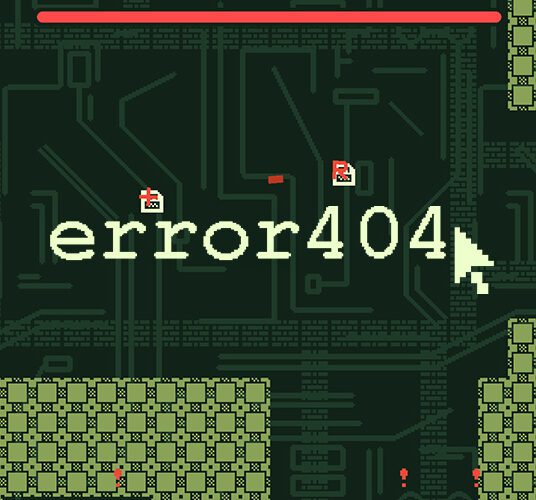
Norwich Student wins at Ukie Student Game Jam 2024
BA (Hons) Games Art and Design student Charlie O’Shea was awarded Best Moment-to-Moment Gameplay award for his game ‘error404’.
View news article
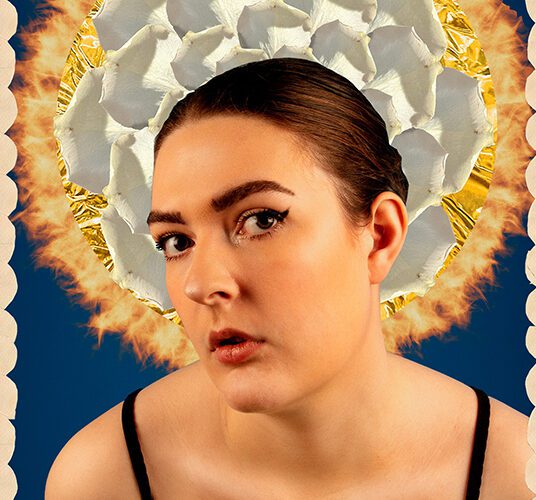
Claudy Woods
BA (Hons) Photography student Claudy Woods tells us about her experience attending the Year 3 London Portfolio crit, and how it has affected her work and practice.
View blog
Work with us
We welcome enquiries about applied and collaborative activities and opportunities. If you are interested in working with us, if you have a question, or, if you would like further information about our research and researchers, please contact:
Email


















